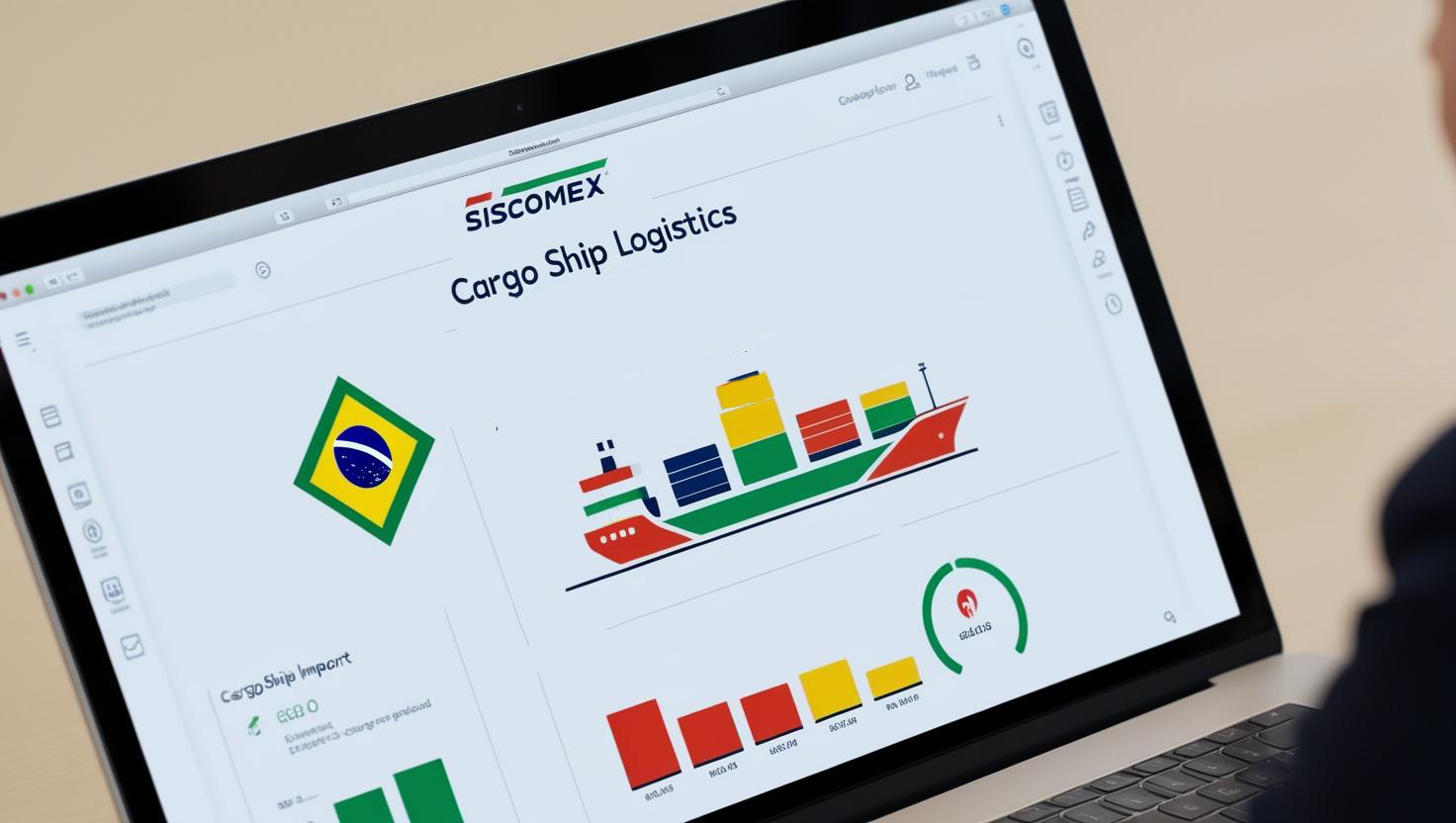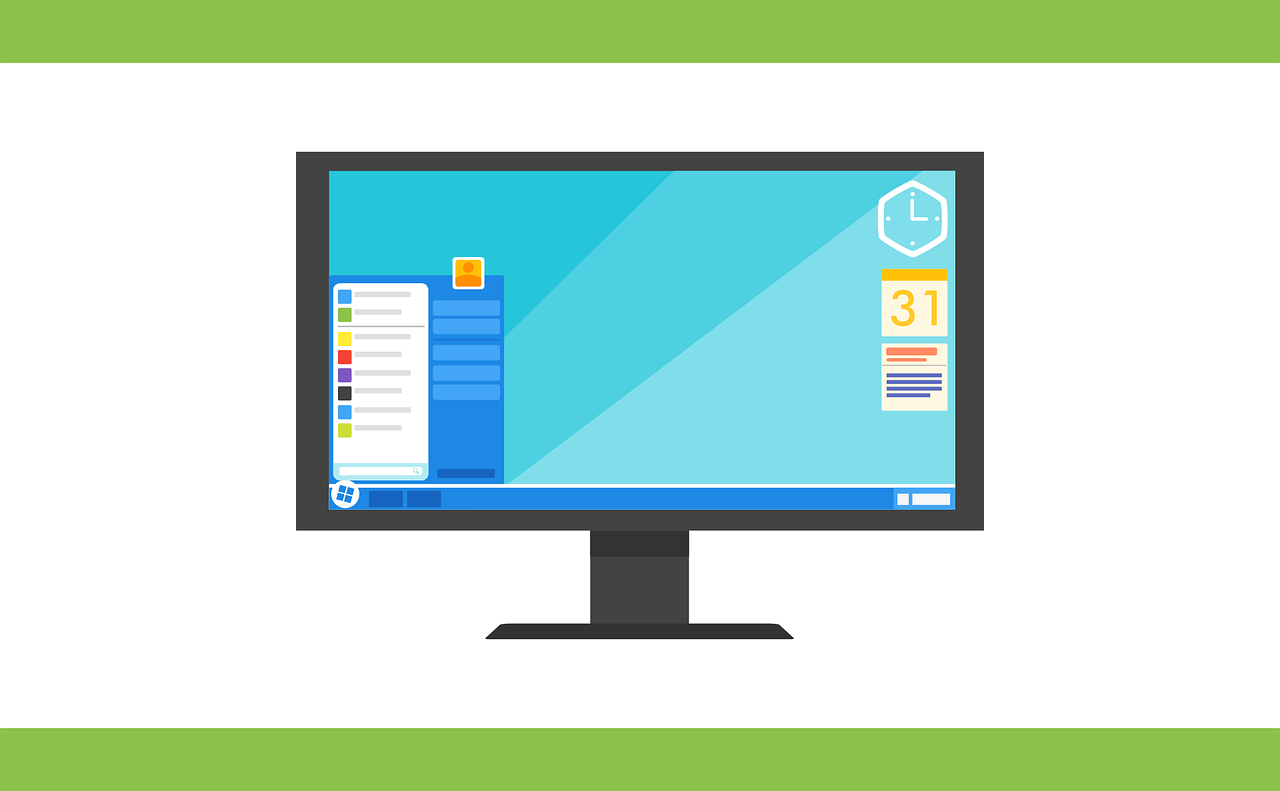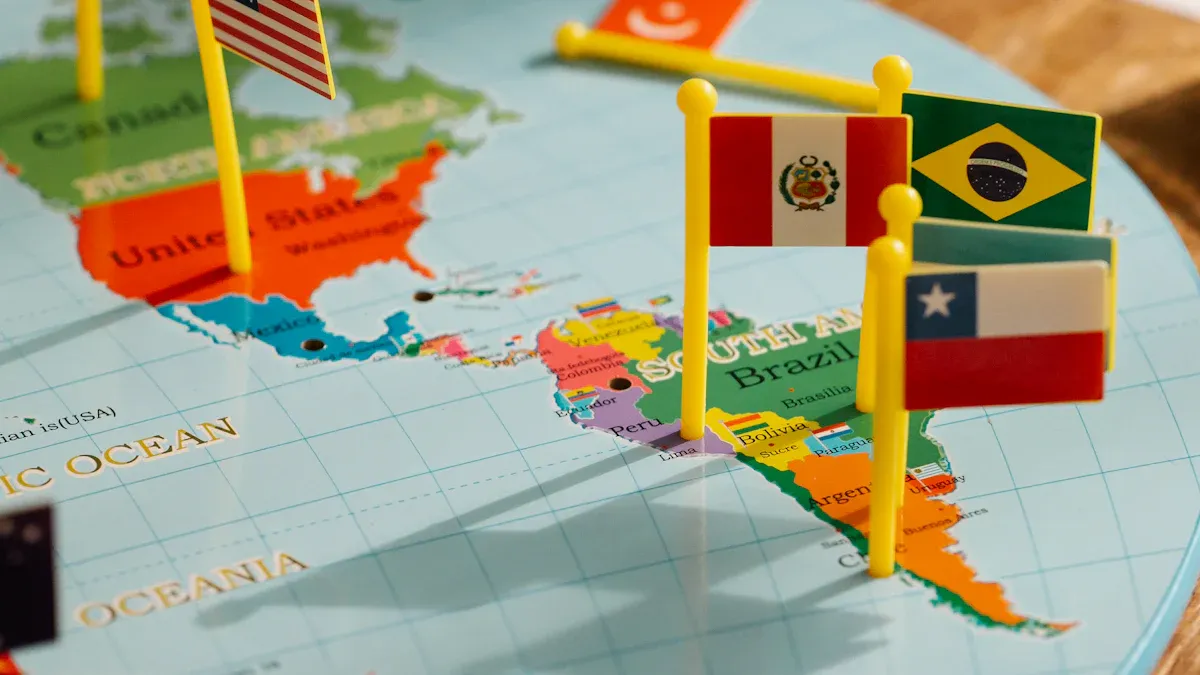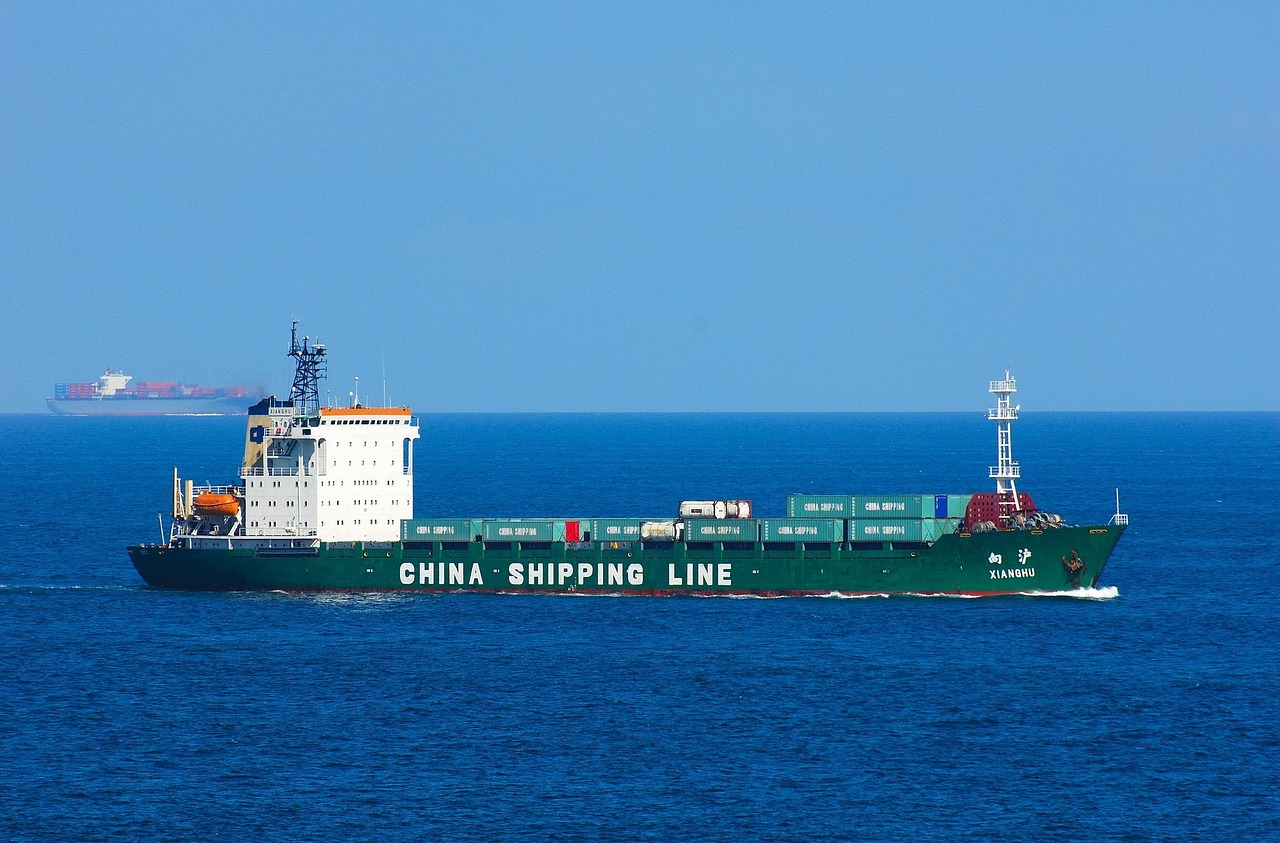Fast Import to Brazil: A Practical SISCOMEX Guide for Beginners

Navigating customs procedures in Brazil can be complex, but SISCOMEX simplifies the process. This integrated system streamlines importation by centralizing data and automating procedures. With proper usage, importers can save time and reduce costs, making SISCOMEX an essential tool for efficient trade operations.
Key Takeaways
SISCOMEX makes Brazil's customs process easier by organizing data and automating tasks. This saves time and lowers costs for importers.
Having the right papers is very important for importing. Important papers include the Commercial Invoice, Bill of Lading, and Import License to follow the rules.
Watching the customs process in SISCOMEX helps importers see shipments live. This improves work speed and avoids delays.
Overview of SISCOMEX and Its Role in Importation

What is SISCOMEX and how does it work?
SISCOMEX, short for the Integrated Foreign Trade System, is a digital platform designed to streamline Brazil’s customs process. It centralizes all import-related activities, including submission, validation, and monitoring of import declarations. The system connects importers, customs authorities, and other stakeholders, ensuring seamless communication and efficient documentation management.
Why is SISCOMEX essential for Brazil’s customs process?
SISCOMEX plays a pivotal role in simplifying Brazil’s customs process. It ensures compliance with regulations by validating documentation and facilitating the submission of import declarations. The system also supports corrections through electronic signatures, enhancing accuracy and transparency. The table below highlights key functionalities that make SISCOMEX indispensable:
Feature | Description |
|---|---|
Validation of Documentation | Validates documents for unlocking the Mercante CE in SISCOMEX Cargo. |
Electronic Signature for Corrections | Enables corrections in SISCOMEX-CARGA using secure electronic signatures. |
For more details, welcome to contact info@yqn.com, Brazil Import expert.
Key benefits of using SISCOMEX for importation
The SISCOMEX system offers several advantages for businesses importing goods into Brazil. First, it simplifies documentation management by consolidating all required documents in one platform. Second, it accelerates the submission and approval process, reducing the time needed for customs clearance. Third, it enhances compliance with Brazil’s customs process, minimizing the risk of penalties or delays. Lastly, the system supports efficient market entry by providing real-time updates and tracking capabilities, enabling businesses to plan their operations effectively.
Step-by-step Guide to Using SISCOMEX
Registering with RADAR and accessing SISCOMEX
To begin using SISCOMEX, importers must register with RADAR, Brazil’s federal portal for foreign trade activities. This registration grants access to the SISCOMEX system, enabling businesses to manage their importation processes efficiently. While the exact procedures for RADAR registration are not detailed, importers should prepare essential documentation, including proof of business activity and financial capacity. Once registered, users can log into SISCOMEX to initiate import-related tasks.
Submitting the Import Declaration (DI) and required documents
Submitting the Import Declaration (DI) is a critical step in the importation process. Importers must provide detailed product descriptions, origin documentation, and itemized cost breakdowns. Challenges often arise due to incomplete or inaccurate information, which can lead to penalties or delays. The table below outlines common obstacles and their implications:
Challenge Type | Description |
|---|---|
Detailed Product Descriptions | Importers need comprehensive details about the product, including material composition and end-use. |
Origin Documentation | Proof of the product’s country of origin is necessary, which can be difficult to obtain. |
Cost and Pricing Information | Itemized breakdowns of costs are required, which may be challenging to gather from suppliers. |
Response Time to CBP Inquiries | Timely responses to CBP inquiries are critical, requiring proactive measures to ensure compliance. |
Risk of Penalties | Inaccurate or incomplete information can lead to penalties from CBP, increasing the stakes for importers. |
Monitoring and completing the importation process
After submitting the DI, importers must monitor the customs clearance process through SISCOMEX. The system provides real-time tracking tools to ensure transparency and efficiency. Key performance benchmarks include a customs clearance time of 48 hours or less and shipment accuracy exceeding 98%. The table below highlights metrics used to evaluate the importation process:
Metric | Benchmark |
|---|---|
On-time delivery rate | 95% or higher |
Customs clearance time | 48 hours or less |
Shipment accuracy | Exceeding 98% |
Inventory turnover ratio | 4-6 times per year |
By leveraging SISCOMEX’s tracking capabilities, importers can streamline logistics and ensure compliance during post-clearance activities. Proactive monitoring minimizes delays and enhances operational efficiency.
Documentation and Tax Requirements for Brazil’s Customs Process

Essential documents for SISCOMEX importation
Proper documentation is critical for successful import/export procedures in Brazil. The SISCOMEX platform requires several key documents to ensure compliance with local standards. These include the Commercial Invoice, Bill of Lading, Certificate of Origin, Import License, and, in some cases, an ANVISA Permit for regulated goods. Additionally, legal and regulatory aspects mandate the submission of the TL (Unique Term) and a Social Contract or Power of Attorney to verify the legal representative's authority. The table below outlines essential documents and their purposes:
Document Type | Description |
|---|---|
TL (Unique Term) | Proves the legal representative's powers for ePayment uploads. |
Social Contract/Power of Attorney | Verifies the legal representative's credentials. |
Original Bill of Lading (B/L) | Required at Brazilian ports for customs inspection. |
Accurate and complete documentation minimizes delays during customs inspection and ensures compliance with Brazil’s regulations.
Overview of Brazil’s import taxes and associated costs
Brazil’s tax and customs obligations are calculated based on the CIF (Cost, Insurance, Freight) value of imported goods. Importers must account for the following taxes:
Import Duty: Ranges from 0–35%, depending on the product classification.
Industrialized Product Tax (IPI): Varies between 0–15%, based on the product type.
PIS/COFINS: Approximately 9.25%, applied to most imports.
ICMS (State Tax on Goods and Services): Typically 17–25%, depending on the state and product category.
These taxes significantly impact freight shipping to Brazil. Importers should carefully calculate costs to ensure compliance with local standards and avoid unexpected expenses.
Tips to ensure compliance and avoid delays
To streamline customs documentation and meet tax and customs obligations, importers should adopt the following practices:
Maintain detailed records throughout the import process to minimize compliance risks.
Avoid misclassifying goods and ensure accurate valuation to prevent penalties.
Coordinate with stakeholders to enhance customs interactions and regulatory compliance.
Leverage SISCOMEX’s integrated system of foreign trade for quick market entry and efficient customs clearance.
For more details, welcome to contact info@yqn.com.
FAQ
What is the purpose of RADAR registration for SISCOMEX?
RADAR registration grants businesses access to SISCOMEX, enabling them to manage importation processes, submit declarations, and comply with Brazil’s customs regulations efficiently.
How can importers avoid delays during customs clearance?
Importers should ensure accurate documentation, classify goods correctly, and respond promptly to customs inquiries. Leveraging SISCOMEX’s tracking tools also helps monitor and expedite the process.
Are there specific taxes for importing regulated goods?
Yes, regulated goods may incur additional taxes or fees, depending on their classification. Importers should verify requirements with relevant authorities, such as ANVISA, before shipment.
See Also
Exploring China-Brazil Trade Through Intermodal South America Agents
5 Reasons Directly Collaborating With Chinese Freight Forwarders Benefits Trade
Essential Guidance for Understanding Incoterms in 2025
Breaking News from Intermodal South America 2025 Event
Free Report: Tapping Into Vietnam's E-Commerce Opportunities

Shipping with YQN - Global Logistics at Your Fingertips
YQN has established subsidiaries worldwide, covering North America, Latin America, Southeast Asia, and the Middle East. We have partnered with 300+ top shipping and airline companies and have access to 3500+ high-quality supplier resources. YQN also has a professional customer service and fulfillment team of over 500 people to provide more worry-free and efficient international logistics services.
Contact Us
You can also email us at info@yqn.com.

